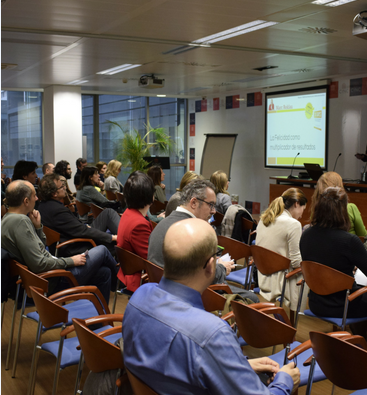Indican cuándo se realiza la acción. He aquí algunos de los más frecuentes:
after afterward(s) again already
any more/any longer at first
at last at once
at the beginning before
early eventually ever after
every day/week etc. finally
first
for ever formerly immediately
in the beginning in the end initially
instantly
last week/month, etc. late
lately long
después después
otra vez, de nuevo ya(v. 15.22)
ya no
al principio por fin
al punto, en seguida; al mismo tiempo al principio
antes temprano
finalmente, al final; con el tiempo desde entonces, por siempre jamás todos los días/semanas, etc. finalmente
primero, en primer lugar; por primera vez
para siempre (v. 15.32) antiguamente inmediatamente al principio al final inicialmente
instantáneamente; inmediatamente la semana pasada/mes pasado, etc. tarde
últimamente, recientemente mucho tiempo
long after long ago long before
meanwhile Monday, etc. next
next week/year, etc. no longer
now nowadays once originally presently previously recently shortly
shortly after(wards) simultaneously since
sometime soon
soon after(wards) still
today tomorrow tonight then yesterday yet
Get this fax off at once The old castle eventually
tumbled down The hotel was formerly
a baroque palace Your train left long ago The doctor will be here presently We must get together sometime
mucho (tiempo) después hace mucho tiempo hace mucho (tiempo)
(cf. before long - dentro de poco) mientras tanto el lunes, etc. después la semana/el año que viene, etc.
ya no ahora
hoy en día, actualmente una vez
en un principio, originalmente poco después previamente recientemente dentro de poco poco después simultáneamente desde entonces alguna vez, algún día pronto poco después todavía (v. 15.25) hoy
mañana esta noche entonces ayer todavía, ya (v. 15.23)
Manda este fax inmediatamente El viejo castillo finalmente
se vino abajo El hotel era antiguamente
un palacio barroco Tu tren salió hace tiempo El médico estará aquí enseguida Tenemos que reunimos alguna vez








